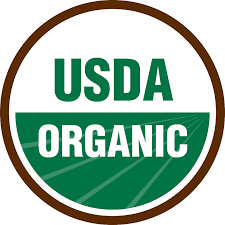Don't be Duped by Misleading Package Labeling

Brightly colored, bold, buzzwords leap off of food packages – but the claims they make can be misleading. Many of these fronts of the package statements are defined and regulated by the Food and Drug Administration (FDA) or U.S. Department of Agriculture (USDA), but a surprising array are not. Even the terms that are regulated (ones below) can be confusing. It’s important to understand what these claims mean to make the most informed choice. Here are a few examples:
ORGANIC: A food that is “certified organic” is required to be produced without the use of certain pesticides, herbicides, or synthetic fertilizers. But this doesn’t make a food any more nutritious than conventionally gown version. Fruit roll-ups and gummy bears made from organic cane sugar or organic fruit juice concentrate are still high in added sugars. French fries and soda made from organic ingredients are still French fries and soda. If you want to avoid or minimize exposure to things like pesticides, protect the environment from contaminants, or support organic agriculture, this label is useful. But by itself, it does not mean “more nutritious.”
EXCELLENT SOURCE OF: this means the food provides at least 20 percent of the daily value of a nutrient per serving. But don’t assume a product is a healthy choice just because it provides one particular nutrient. For example, while yogurt is naturally an excellent source of calcium, it can also be highly sweetened or have other unhealthy additives that make the product a less-than-ideal choice.
GLUTEN-FREE: Foods with this label contain less than 20 parts per million of gluten, which is the lowest amount than can be reliably scientifically detected. A gluten-free diet is essential for people with celiac disease (one percent of Americans) or non-celiac gluten sensitivity, but there is no scientific evidence that foods without gluten are healthier than their regular counterparts for the rest of the population. You may see this claim on products that are manufactured to be gluten-free, like breads or snacks. This phrase is becoming more common on products that are naturally gluten-free, like bottled water or fruits. Be aware that, while refined wheat flour must be enriched with important vitamins and minerals found in unrefined grain, gluten-free products often lack these nutrients, and many contain higher amounts of added sugars, salt, and other unhealthy ingredients than some of their gluten-containing counterparts.
REDUCED: this claim indicates the product has at least 25 percent less of something (such as fat, cholesterol, sugar, sodium, or calories) compared to the regular version of that product. But, again, this doesn’t ensure the product is a good choice for health. For example, reduced fat peanut butters frequently have less healthy unsaturated fat and more added sugar, and a reduced-calorie food isn’t necessarily a food that will promote weight loss.

